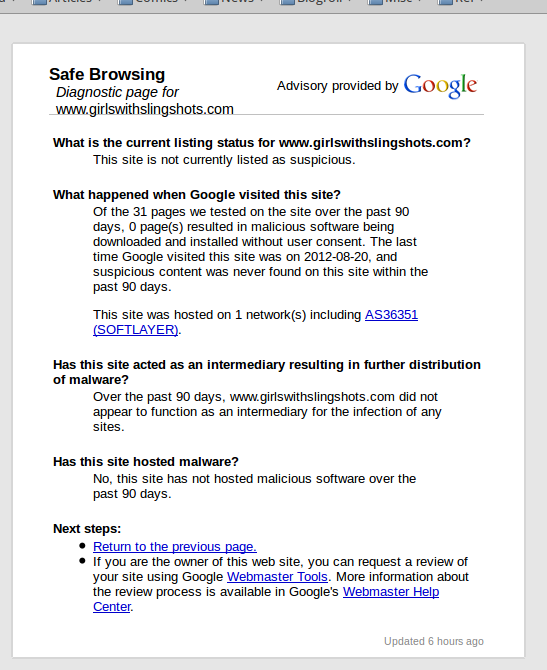August 31, 2012
Attack! (Huh?)
So there I am browsing my daily comics, and for one of the sites, Firefox pops up this warning:

Whoa! The site must have gotten hacked, right? But I click on the "Why was this page blocked?" button, and got this response:

So... there are no attacks, no evidence of a hack, but you just decided to block browsing anyway? And this appears to be based on a Google list somewhere, which should be very scary for the site owner if this is more than just a Firefox bug: Google has made it very clear, repeatedly, that they do not give a single shit when their algorithms have some catastrophic effect on individual people or individual websites, and they make it exceedingly difficult to get a resolution (except for people who know somebody inside Google or can get a high-ranking post on Reddit or Hacker News, of course).
Perhaps I'm overreacting. Is there another explanation why Firefox would post big scary messages and block a site based on a Google list which, when queried, says there's no reason for alarm? I'm sure I'll think of it momentarily.
"A beautiful program with a single misplaced semicolon is like a sports car with one piston out of line. Both are dead machines, functionally indistinguishable from junk." --Kevin Carey
Posted by blahedo at 9:50am on 31 Aug 2012